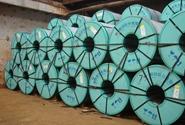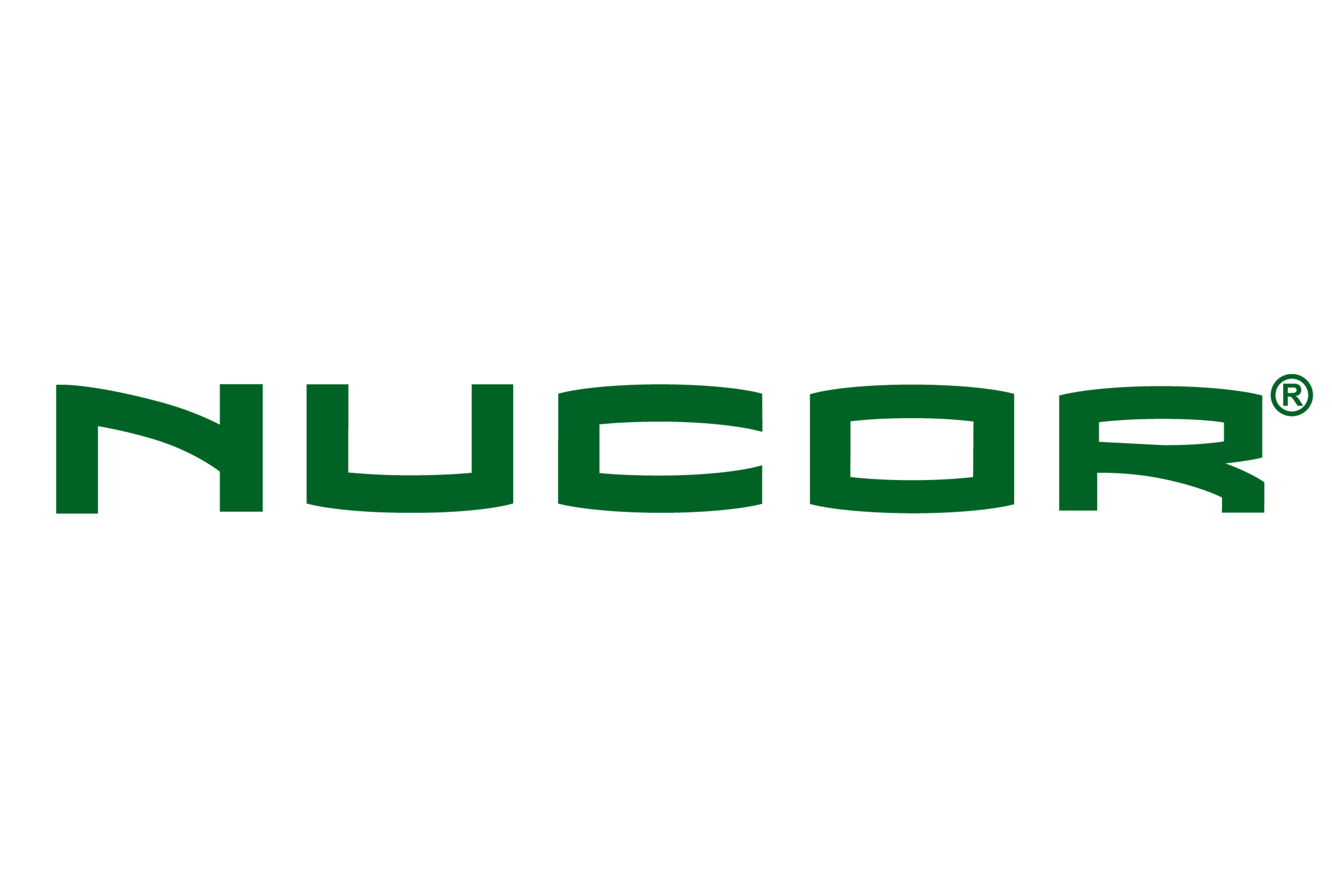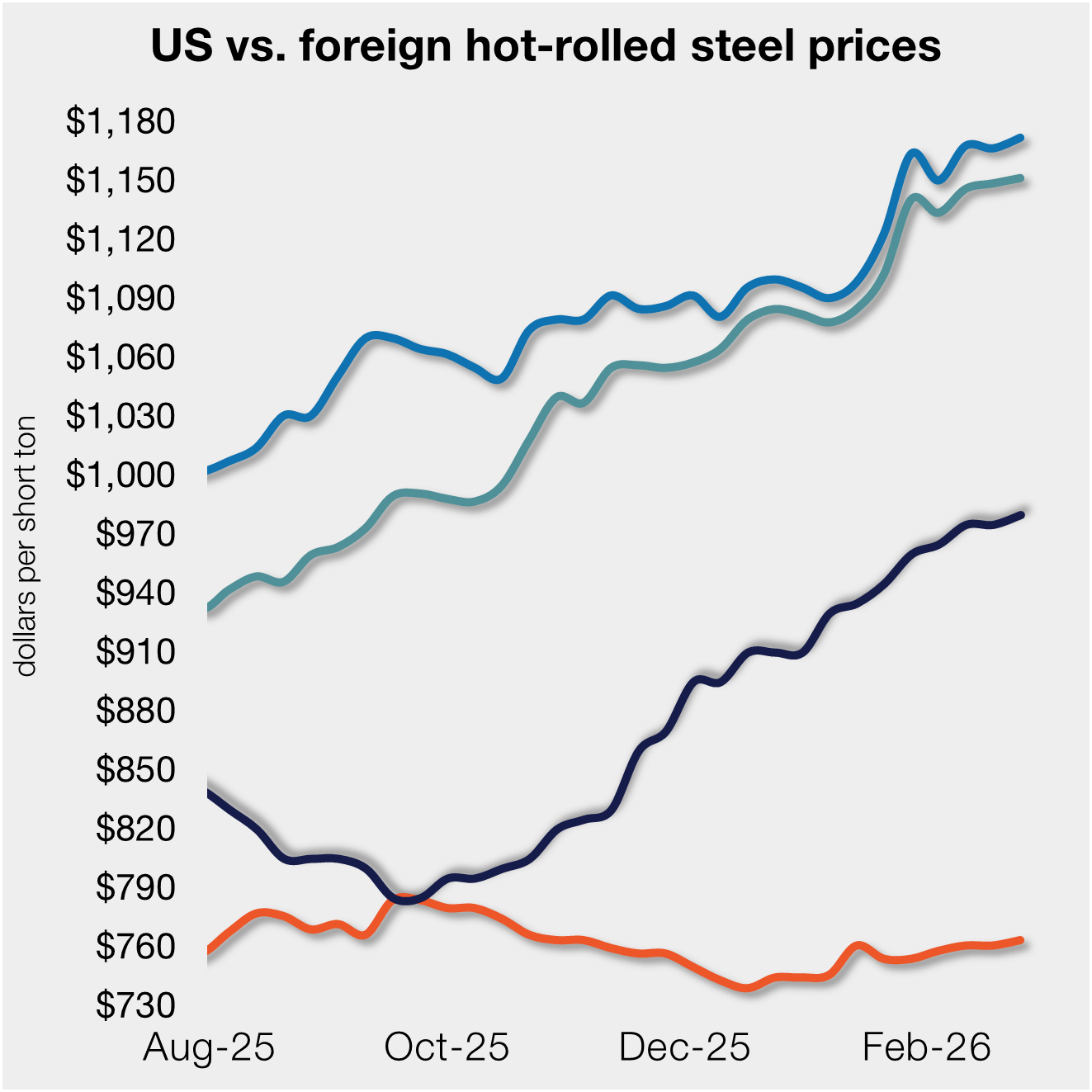Prices

March 29, 2015
AIIS View of February Steel Imports
Written by John Packard
The American Institute for International Steel issued the following report on February 2015 steel imports into the United States. Imports, which declined in February compared to January, are 23 percent higher than at this time last year and one of the major reasons why service center inventories are taking so long to adjust. The higher the distributor inventories, the less flat rolled steel and other steel products they need to purchase from the domestic steel mills.
Falls Church, VA. March 27, 2015. Steel imports dropped sharply in February, with decreases from all trading partners of significant size – except Russia and China.
Imports fell 18.5 percent to 3.58 million net tons from January to February. This, though, was still 9 percent higher than in February 2014. The U.S. imported 544,000 net tons of steel from the European Union, nearly 23 percent less than in January, but 4.7 percent more than last February. Among individual countries, South Korea sent the most steel to the United States in February – 480,000 net tons, 42.6 percent less than the previous month, but 23.5 percent more than a year earlier. Imports from Brazil and Canada were nearly equal at 454,000 net tons and 451,000 net tons. These represented monthly decreases of 38 percent and 7.5 percent, respectively. Compared to February 2014, Brazil was down 7.2 percent, while Canada was up 7.6 percent. Imports from Russia increased by nearly 150 percent from January to 281,000 net tons – though this was nearly one-third less than a year earlier – while 264,000 net tons of imports from China were almost a third higher than the January total and nearly 50 percent more than last February’s number.
For the first two months of the year combined, imports of 7.98 million net tons were nearly 23 percent ahead of the total during the same time in 2014. South Korea, the E.U. and Brazil have been the leading sellers of steel to the U.S. so far this year, at, respectively, 1.32 million net tons (60.4 percent increase), 1.25 million net tons (42.1 percent increase) and 1.19 million net tons (42.9 percent increase).
Semifinished imports in February were down by more than a quarter compared to last February at 751,000 net tons. The 1.57 million net ton total for January and February was 11.4 percent less than the first two months of 2014.
The steep decline in steel imports in February, at first, seems somewhat surprising. The United States has been economically healthier than many other parts of the world, of late, and the U.S. dollar is exceptionally strong, all of which generally bodes well for imports. The Census Bureau reported, though, that import decreases occurred “primarily in hot rolled sheets and oil country [tubular] goods.” This makes the numbers much less surprising. The falling price of oil has caused energy companies to cut back on drilling and fracking projects, which has reduced the demand for OCTG. South Korea is a major supplier of OCTG to the U.S., and that country alone accounted for nearly half of the January-to-February decline. The long-term trend of import increases remains – February’s numbers were nearly one-tenth higher than a year earlier – but if demand in the energy sector continues to weaken, it could have a noticeable impact on steel imports, and overall sales, this year.







